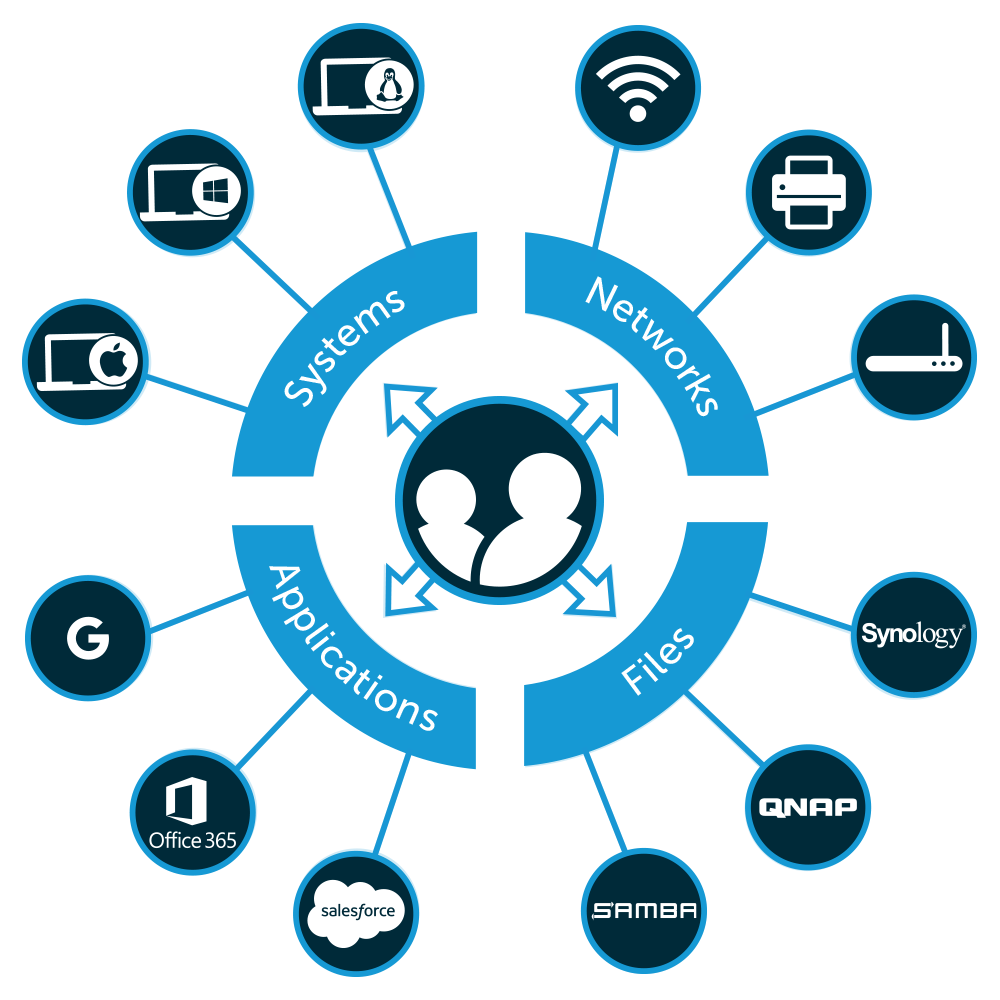IT organizations that have been using Apple® macOS® Server are wondering what’s in store for them in the future. Apple has been quietly shifting away from macOS Server and deprecating various components on a regular basis. For those IT organizations that are using macOS Open Directory, there is great concern. Should IT organizations replace macOS Open Directory?
The short answer is yes. While it isn’t clear if Apple is stepping away from Open Directory, it is clear that they are taking a step back from macOS Server. It is doubtful that Apple will continue to invest in macOS Server and consequently Open Directory over the long term. Of course, it is difficult to get any confirmation from Apple. But if we assume that is all true, what should IT admins do to replace macOS Open Directory?
Complexities with Replacing macOS Open Directory

For most IT organizations, the reason they chose Open Directory in the first place was likely because of their Mac infrastructure. Further, choosing Open Directory likely meant that the organization was not interested in using Microsoft® Active Directory®, the on-prem market share leader in directory services. OpenLDAP™ would have been an option, but Apple made it easier to provide LDAP authentication with Open Directory rather than using OpenLDAP.
Additionally, the IT landscape has shifted tremendously since Open Directory became popular. Linux laptops, desktops, and servers are more prevalent than ever. Data centers are being replaced with cloud infrastructure such as AWS® and Google Cloud Platform™. Microsoft Office® and Exchange® have been replaced by G Suite™ and Office 365™. Web applications are available for virtually any business function. All of these fundamental changes are causing IT admins to debate what the next generation of directory services looks like.
With Apple likely shifting away from Open Directory, now may be the perfect time to reevaluate the identity management strategy and approach. Modern, cloud forward organizations are leveraging cloud directory services instead of on-prem solutions such as Active Directory, Open Directory, and OpenLDAP. One cloud identity management solution that many are turning to is called JumpCloud® Directory-as-a-Service®. This SaaS-based identity provider can securely manage and connect users to the IT resources they need including systems, applications, files, and networks regardless of platform, protocol, provider, and location.
A macOS Open Directory Alternative

With an approach that provides IT admins with One Directory to Rule Them All®, it’s possible to gain centralized control and visibility over the following IT resources:
- Mac, Linux, and Windows systems
- Local and cloud servers (GCP, AWS, IBM)
- On-prem and web-based applications (Jira®, Salesforce®, GitHub™ )
- Productivity software (G Suite, Office 365)
- Virtual and physical file storage (Box™, Dropbox™)
- Networks (Wired and WiFi)
Additionally, JumpCloud offers deep system management capabilities for not only Macs, but also Linux and Windows machines. JumpCloud Commands enables IT admins to to remotely execute tasks across groups of systems using scripts and commands. Our other system management feature, JumpCloud Policy Management, doesn’t require any scripting or coding. JumpCloud Policies allow IT organizations to increase endpoint security by being able to determine behavior like when a system screen locks or whether or not USB storage devices are enabled.
In short, JumpCloud Directory-as-a-Service empowers companies to use the modern IT resources that work best for them, securely and efficiently.
Next Steps to Replace macOS Open Directory with JumpCloud

Learn more about how to replace macOS Open Directory with JumpCloud by signing up for a free account. You’re first ten users are on us, so that you can truly test whether or not our cloud-based directory service is a fit for your IT environment. If you need any assistance along the way, consider browsing our YouTube Tutorial playlist or our Knowledge Base. Still have some remaining questions that need answering? Please drop us a note! We’d be happy to help.





